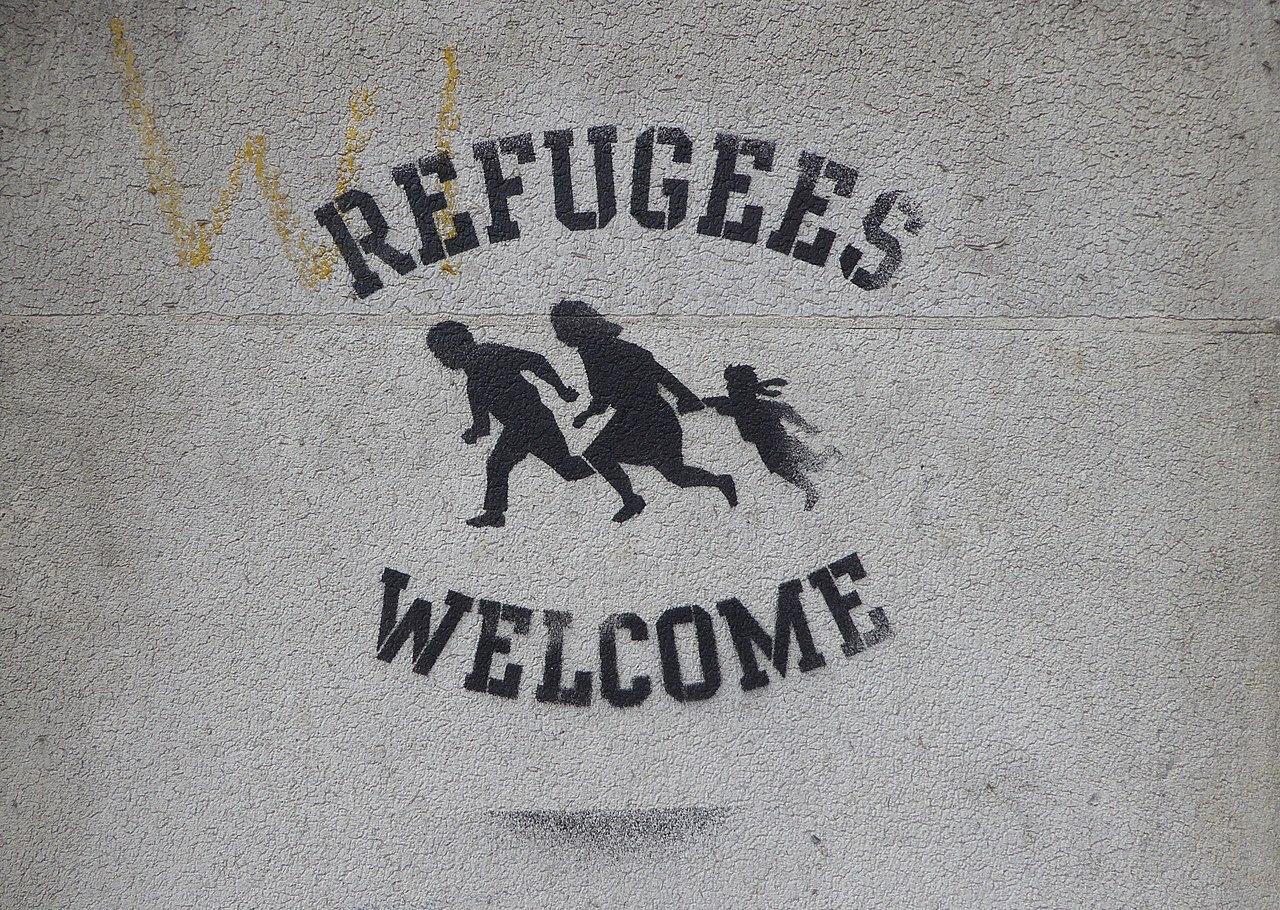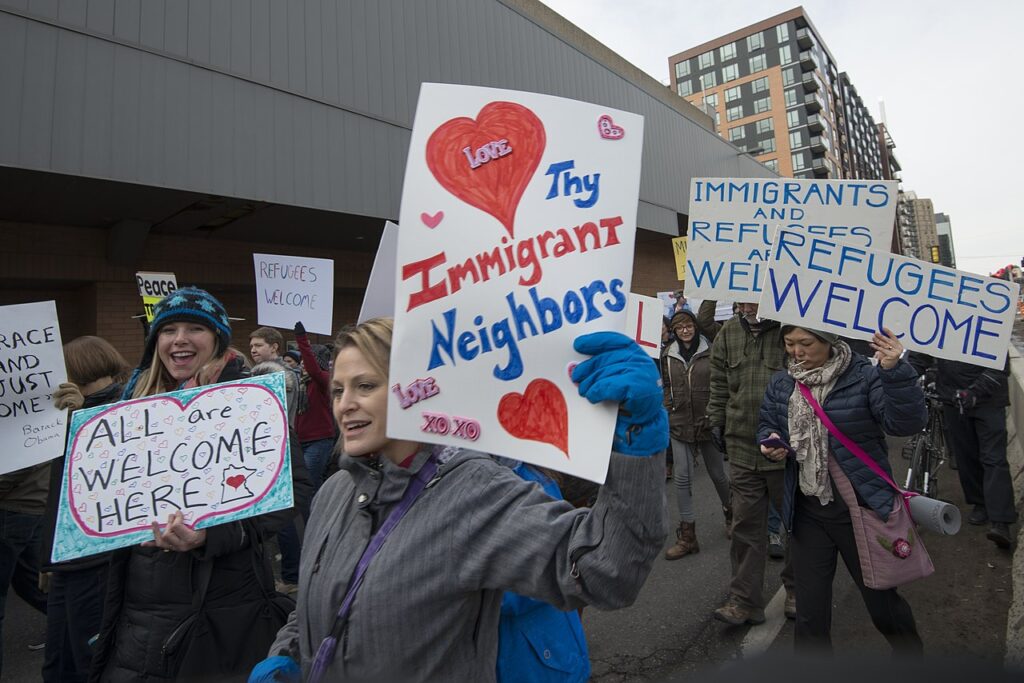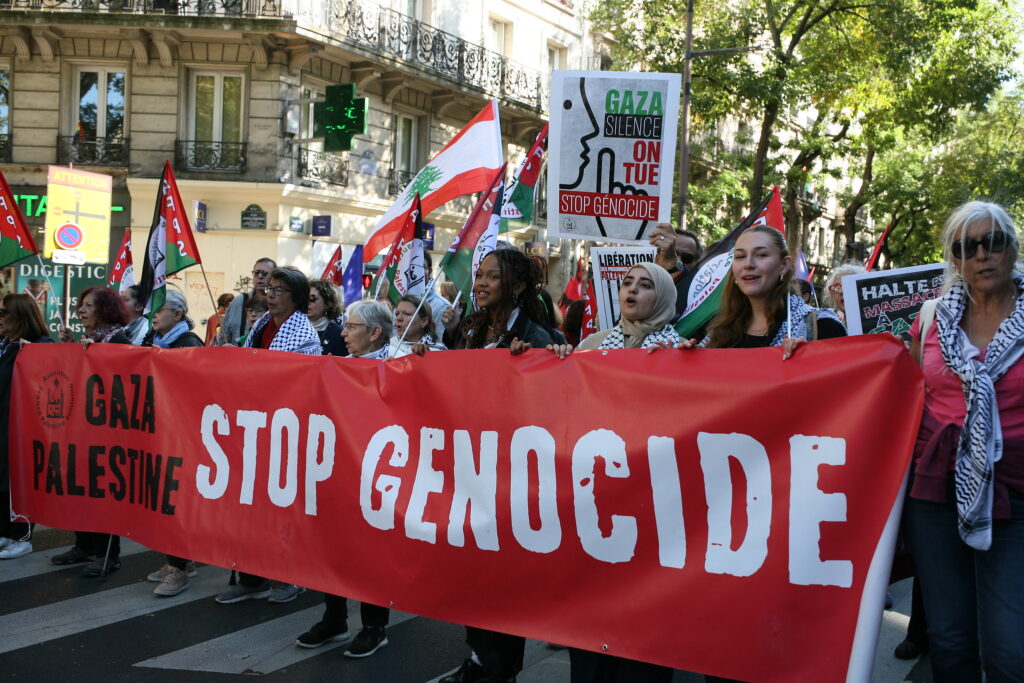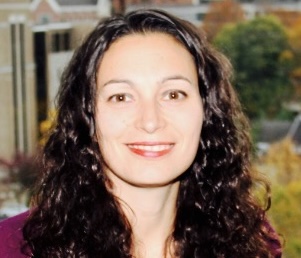
“It’s a genocide that’s taking place that you people don’t want to write about,” said President Trump to reporters on May 12, 2025, “but it’s a terrible thing that’s taking place.” You might have thought he was talking about Gaza where more than 54,000 Palestinians have been killed—including 16,000 children—and much of the coastal strip has been destroyed by Israel’s military assault, but you would be wrong. Instead, the Trump Administration, without evidence, has posited a “genocide” of Afrikaners, the White South African minority who are now the sole new “refugees” being resettled to the United States amidst an otherwise complete shutdown of the U.S. refugee admissions program. This, despite a judge’s February order blocking the program’s suspension based on a lawsuit filed by faith-based groups.
How has this come about, how does it connect to the broader contexts of the Trump administration’s policies on immigration and Palestine/Israel, and what can we learn from the responses of religious organizations and leaders?
Resettlement Agencies and Religious Leaders Respond
When the news broke that the Episcopal church, long tied to South Africa through the leadership of Archbishop Desmond Tutu, would end its partnership with the federal refugee resettlement program, Vice President Vance had one word in his re-tweet of the story: “crazy.” However, when faced with the prospect of receiving no refugees from dire contexts such as Afghanistan while having to resettle individuals facing no appreciable imminent threat, it is no surprise that the Episcopal church balked. As Presiding Bishop Sean Rowe said, “the idea that we would be somehow resettling Afrikaners at this point over other refugees, who have been vetted and waiting in camps for months or even years, is unfathomable to us.”
His view reflects that of more than 150 White South African Christian leaders who signed a statement rejecting Trump’s claims of White victimization in South Africa. “The narrative presented by the US government is founded on fabrications, distortions, and outright lies. It does not reflect the reality of our country and, if anything, serves to heighten existing tensions in South Africa,” the statement said.

Some resettlement organizations, such as the U.S. Committee for Refugees and Immigrants, agreed to resettle the Afrikaners, “hopeful” that it indicated intention to restart the U.S. refugee program. Other faith-based groups wrestled with the issue or provided only limited support. Church World Service supported one family with remote services, while voicing frustration with the administration’s actions; Catholic Charities of the Diocese of Arlington assisted with processing some travel expenses at the state of Virginia’s request. Other organizations did not take part: Jewish Family and Community Services East Bay in California refused to participate; their director called it a “stunt.” A major national coalition focused not on rejecting Afrikaners but rather on leveraging their resettlement to get the broader program back: “It’s time for the Trump administration to honor our nation’s commitment to the thousands of vulnerable refugees that the United States has abandoned,” said John Slocum of Refugee Council USA, comprised of more than forty organizations.
The U.S. Catholic Church had already ended its cooperative agreement on refugee resettlement with the federal government; it is suing the Administration for its suspension of funds for the program. Bishop Seitz, head of the Bishops’ committee on migration, has also spoken out about this new resettlement policy, incredulous that a “new channel is open to white Afrikaners” while at the same time the U.S. is “closing the door for people who are poor and starving.”
A May 27 amicus brief filed by Jewish, Christian, and Muslim organizations in support of the original faith-based lawsuit challenging Trump’s refugee ban outlined theological arguments from their different traditions that put “service to the stranger—refugees, immigrants, neighbors—at the core of their practices and systems of belief.” Several used the word “obligation” to describe this work as something inextricably bound to their understanding of themselves as people of faith. At the heart of refugee resettlement is a call to accompaniment, a walking with those most vulnerable and on the margins. While refugees are often measured in the millions, the process of resettlement is a sacred and tactile work of encounter: collecting car seats and kitchen items; driving a family to the social security office; hearing stories of loss, terror and alienation. To prioritize groups that are not most in need is an affront to fundamental commitments and convictions. Thus, it is not unexpected that the resettlement of Afrikaners has been met with a combination of resistance, dismay, and redoubled advocacy by so many of the faith-based organizations and leaders confronted with this new policy.
“Refugees” Who Don’t Fit the Definition
The United Nations High Commission for Refugees, usually involved in the referral and vetting of refugees, was not part of the screening process for Afrikaners. Based on international law and a 1951 refugee convention, refugees are people forced to flee, unable to return to their own country because of “feared persecution as a result of who they are, what they believe in or say, or because of armed conflict, violence or serious public disorder.” Afrikaners are a far cry from fitting this definition.
At the heart of refugee resettlement is a call to accompaniment, a walking with those most vulnerable and on the margins.
“This is the land of milk and honey if you’re white,” says South African political scientist Piet Croucamp, who like many experts as well as Afrikaner farmers, argues there is no credence to the claim of “White genocide.” Afrikaners, descendants of Dutch colonists who first settled in Africa in the 1600’s, remain economically ascendant long after the fall of the apartheid government they led from 1948–1994. All indicators point to ongoing inequality; for instance, despite being just 8% of the population, White people occupied 65.9% of top management posts as compared to 13.8% of Black people in 2022. While economic privilege does not shield any group from other kinds of oppression, farm killings of White South Africans remain statistically low in the context of the country’s overall crime problem and high murder rate, which affects all races and especially Black South Africans who continue to bear the brunt of violence.
Somali-British poet Warsan Shire describes the experience of a refugee as one of desperation. “No one leaves home unless home is the mouth of a shark, you only run for the border when you see the whole city running as well,” she writes in the opening stanza of the poem “Home.” In my collaboration with immigrant and refugee organizations in Northeastern Pennsylvania and through a community oral history project, I have heard many hard stories in which being designated a refugee was simply a matter of survival. Chandra Sitaula, a Bhutanese refugee who faced persecution as part of the “Lhotshampas” minority, was expelled to Nepal after having relative status as a landowner. As he shared, “it is not [a] choice for us to become refugees.”
Resettled refugee Ushu Mukelo recounted how he and his father and brother ended up in a Ugandan refugee camp after a rebel group attacked their village in the Democratic Republic of Congo during its brutal civil war. “Our mom [was] killed. We lost everything…because of war…we were forced to flee, to save our lives.” In contrast, Afrikaner refugees were seen at the Johannesburg airport with carts full of suitcases; no one was running for their lives.
Moving Afrikaners to the Front of the Line
In February, Catholic Vice President J.D. Vance argued, drawing on a Catholic concept of “ordo amoris,” that love is ordered toward family and neighbors first in such a way that justifies this administration’s immigration crackdown. Many Catholics, including Pope Francis and then-soon-to-be Pope Leo XIV, pushed back—not to say that we don’t owe love to our family but rather that such love is not exclusive or scarce. Pope Francis wrote to the U.S. Bishops criticizing the administration’s immigration policies, exhorting Catholics “not to give in to narratives that discriminate against…our migrant and refugee brothers and sisters,” and clarifying that “Christian love is not a concentric expansion of interests that little by little extend to other persons and groups.” Then-Cardinal Prevost shared a now famous tweet stating simply that “JD Vance is wrong: Jesus doesn’t ask us to rank our love for others,” referencing the title of a National Catholic Reporter article critiquing the vice president.
Now, a couple of months later, Vance and others have found it in their hearts to show love for the stranger—just not by advocating for the Black, Brown or poor and persecuted ones of all backgrounds that have long come through the refugee resettlement program, but rather by moving White South Africans to the front of the line. The decision to accept Afrikaners comes amidst a backdrop of targeting immigrants of color—denying refugee admission for Afghan, Congolese, and other populations who were poised to enter; ending humanitarian parole for Venezuelans, Haitians and others; and marking for deportation unauthorized immigrants who have come to this country predominantly from Central and South America and Mexico—wrongly associating a lack of lawful status with criminality.
At a May 21 meeting with South African President Cyril Ramaphosa, President Trump doubled down on his claims of widespread Afrikaner suffering, using erroneous evidence. As proof of mass killings of White people, he showed his guest images that proved to be humanitarian aid workers lifting body bags in the Democratic Republic of Congo, not South Africa. As Gareth Newham, of the Institute for Security Studies in South Africa which tracks violent crime, has shared: “if there was any evidence of either a genocide or targeted violence taking place against any group based on their ethnicity…we would be amongst the first to raise (the) alarm and provide the evidence to the world.” Such expertise has had no bearing on Trump’s perspective.
Trump’s History with “Anti-White” Racism
Trump has been interested in the Afrikaners’ alleged plight of systematic persecution for years as part of his and his allies’ obsession with the manufactured cause of anti-White racism. Trump has had a longstanding cozy relationship with White supremacy and beliefs in White victimhood, which are the undercurrent of his mantra to “make America great again” and which have also brought him in contact with the views of South Africa’s Far Right—views shared by his outgoing appointee Elon Musk. This preoccupation began during Trump’s first term when he directed then Secretary of State Pompeo to investigate the South African government’s “land and farm seizures” from White farmers based on alarmist and inaccurate reporting by Tucker Carlson.
At particular issue for Trump now is a January 2025 law (Expropriation Act) that seeks to address unequal land ownership in South Africa and is cited in the February executive order promoting resettlement of Afrikaners. Apartheid had banned Black South Africans from owning land for decades and forcefully removed Blacks from their land. As a result, White South Africans continue to hold the vast majority of land; they make up 7% of the population but own 72% of private farmland. The 2025 law allows for limited state expropriation of land for a “public purpose” with compensation offered in some, but not all cases, in a process subject to judicial scrutiny. No land has yet been seized under the Act. It is important to note that according to Catholic social teaching, expropriation of land is sometimes called for. In Populorum Progressio, para. 24, Pope Paul VI wrote: “If certain landed estates impede the general prosperity because they are extensive, unused or poorly used, or because they bring hardship to peoples or are detrimental to the interests of the country, the common good sometimes demands their expropriation.”
Broader Contexts: The Palestine Factor
The administration’s February executive order also cut aid and assistance to South Africa based in part on policy differences on Palestine. In particular, the order cited that “South Africa has taken aggressive positions towards the United States and its allies, including accusing Israel, not Hamas, of genocide in the International Court of Justice.” Indeed, South Africa led the charge to bring international action against Israel’s assault on Gaza. In the end, the ICJ’s preliminary opinion in January 2024 ruled that Palestinians’ rights to protection from genocide were plausibly at risk and Israel should take steps to prevent genocide. Since then, many experts including Holocaust scholars and Amnesty International have concluded that a genocide is taking place in Gaza. In fall 2024, Pope Francis also urged further investigation into whether Israel’s Gaza military campaign constitutes a genocide.

As part of their motivation for bringing the case and for their solidarity with the Palestinian people, South African leaders cited their country’s history of repression and violence, human rights abuses and the crime of apartheid. For its part, the U.S. under the Biden Administration called South Africa’s case “meritless,” refusing to reckon with how U.S. and Israeli policies had so devalued Palestinian lives. The Trump administration has now further upped the ante with its retributive stance toward the South African government. They see no irony in their willingness to recognize a “White genocide” in South Africa, with no evidence, while supporting ongoing atrocities by Israel in Gaza; indeed, President Trump is colluding in such wrongdoing with his own plan, which coincides with Israel’s, to ethnically cleanse Palestinians from the coastal enclave.
Conclusion: A Call to Solidarity
June 20th is the annual global celebration of World Refugee Day. Since January 20th, the Trump Administration has indefinitely paused refugee resettlement; that is, until it opened U.S. doors to Afrikaners. Daily, Palestinians are being killed, displaced, starved and deprived of humanitarian aid and basic rights by Israel. The resettling of Afrikaners and the shunning of South Africa makes a mockery of two important things: refugee resettlement based on international norms and the claim of genocide, which has been unfolding not in South Africa, but in Gaza. By making this move, the Trump Administration demonstrates that it does not care about either. Faith communities and all people of goodwill must continue to do their part to provide friendship, solidarity, and welcome to local refugee and immigrant communities and to raise their voices for a permanent Gaza ceasefire and a just peace in Palestine/Israel.

